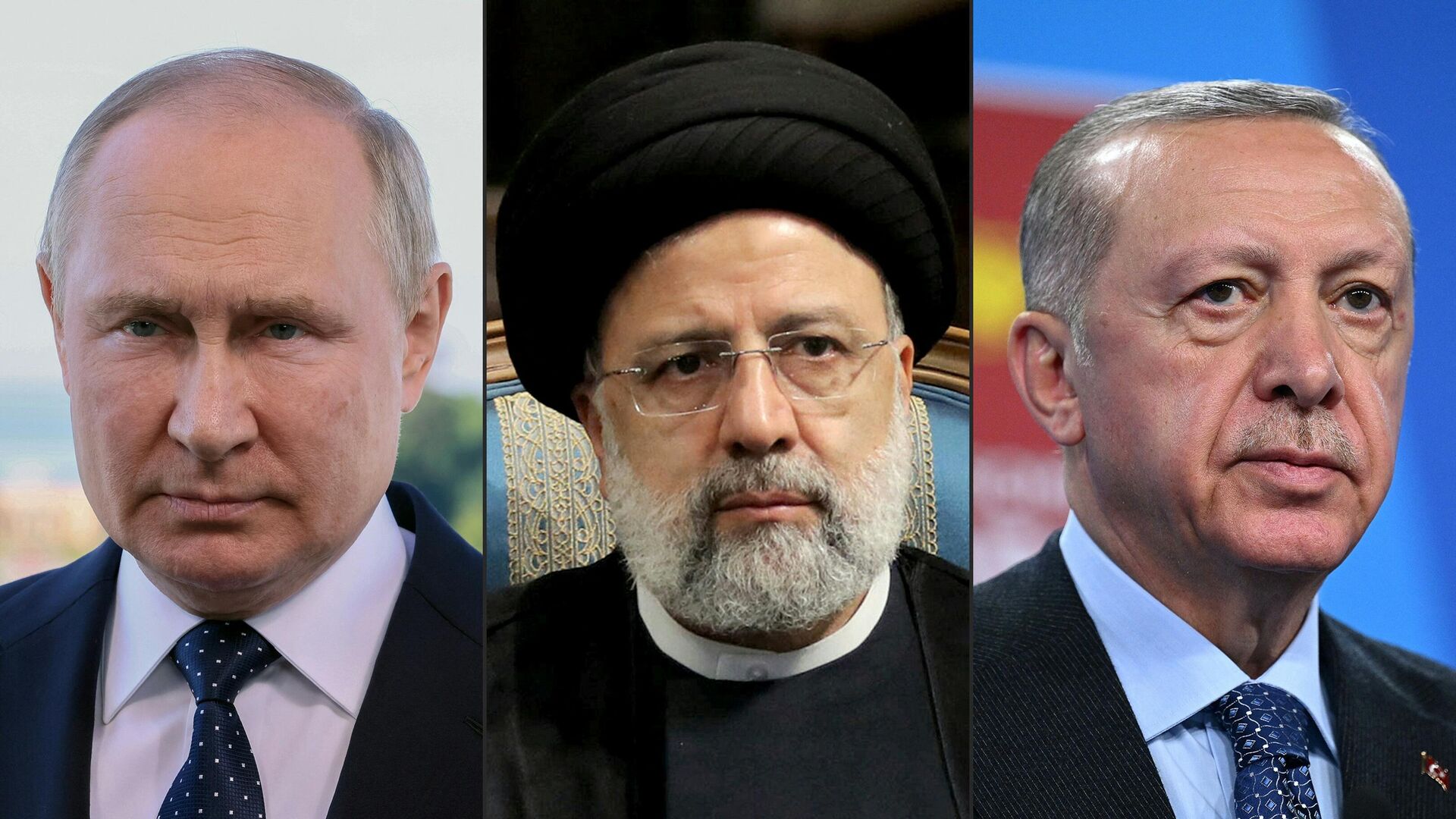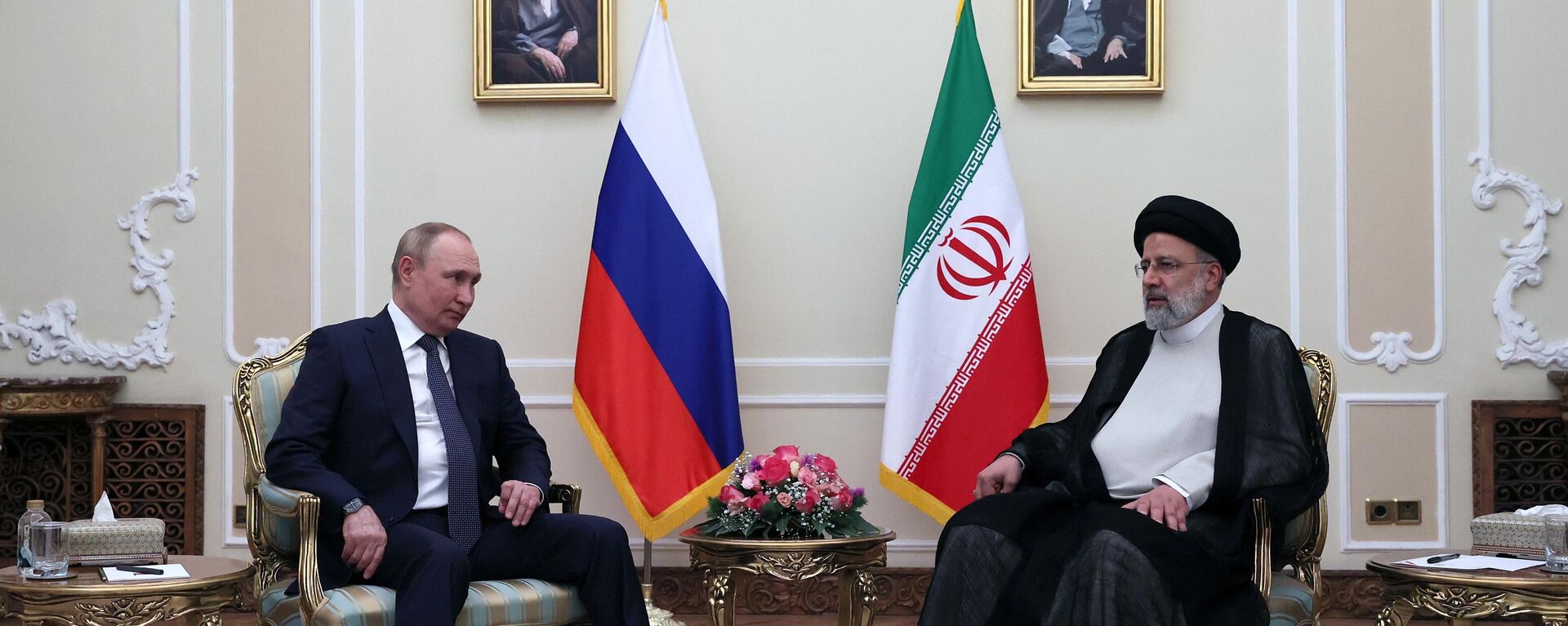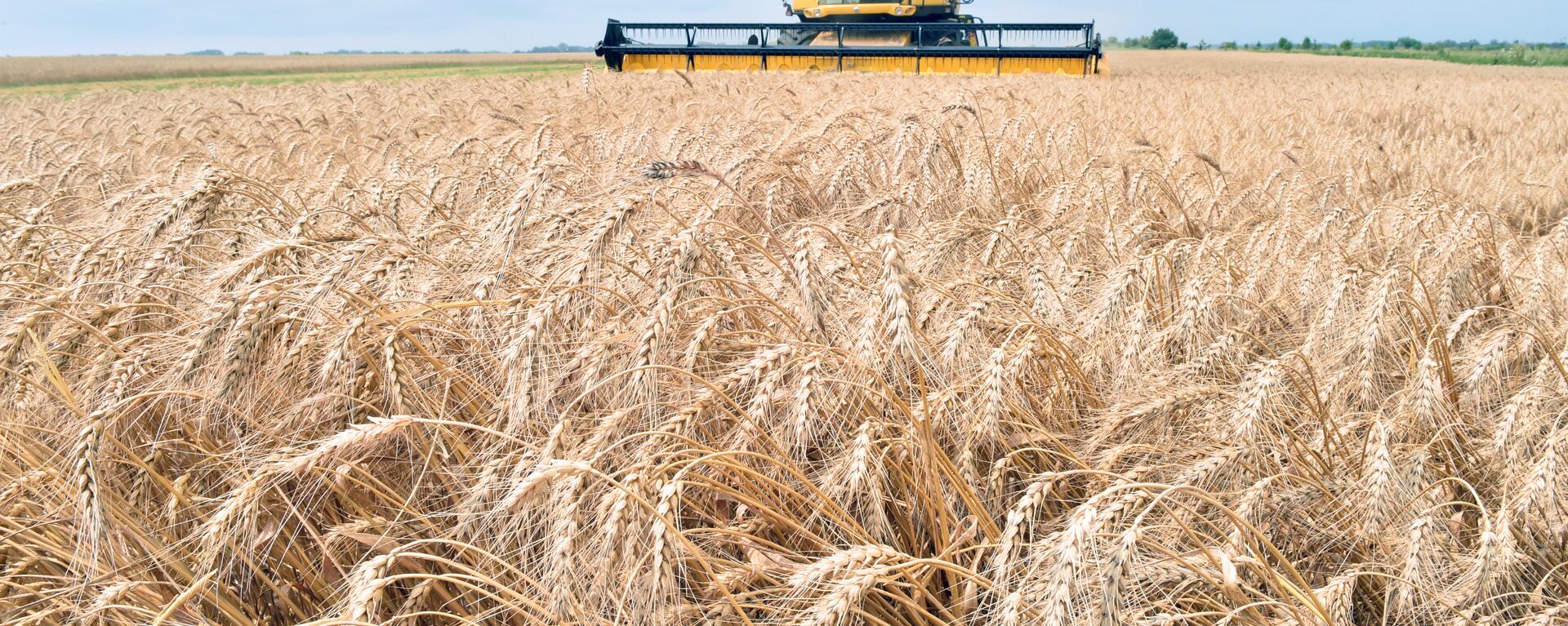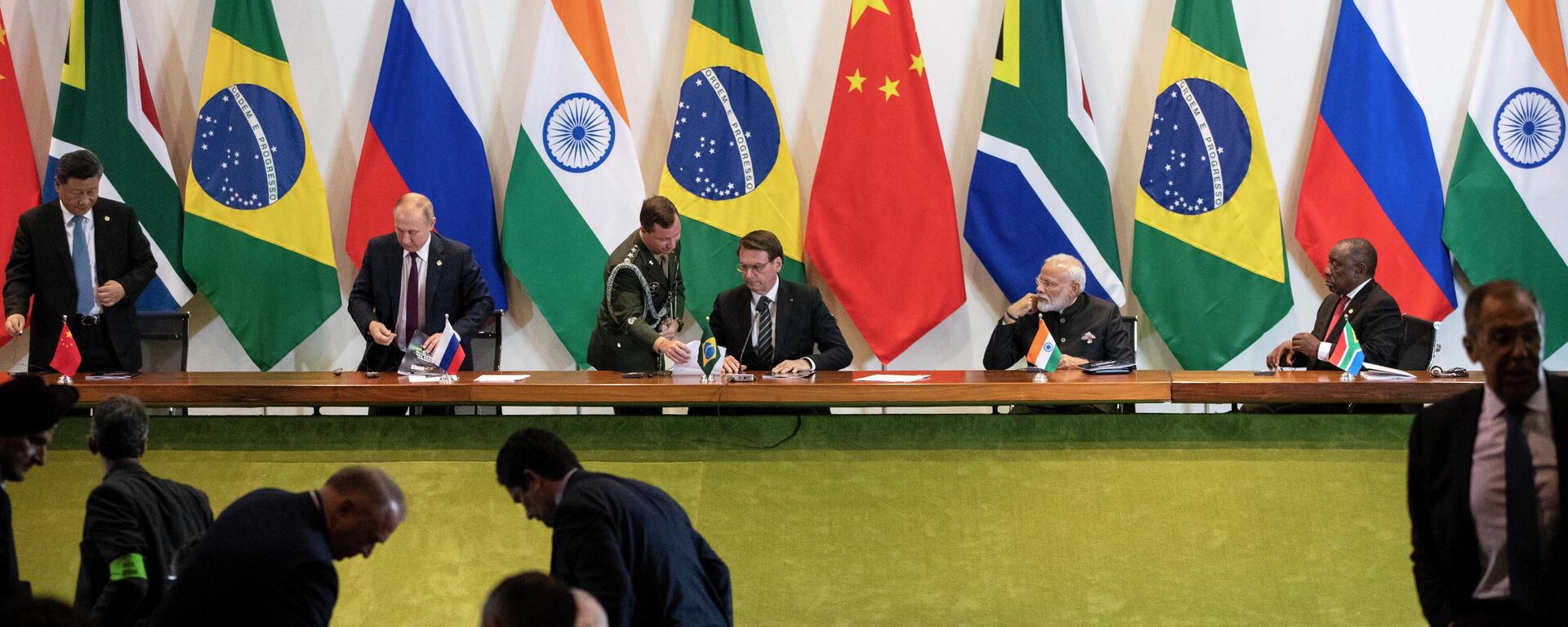How Russo-Turkish-Iranian Talks May Help Fix Regional Problems, Set Stage for Global Transformation
15:05 GMT 19.07.2022 (Updated: 16:47 GMT 08.01.2023)

© AFP 2023 / MIKHAIL METZEL
Subscribe
Russian President Vladimir Putin visits Tehran on July 19 to take part in the trilateral Astana meeting with his Iranian and Turkish counterparts. The leaders are due to discuss strategic economic and political cooperation, including tackling the food crisis and further de-dollarization.
"The [Putin visit to Iran] is quite important in every sense in the geopolitical, geo-economic, and other aspects," explained Dr. Kerim Has, a political analyst of Russian and Eurasian affairs. "It is the first foreign visit of President Putin out of post-Soviet territory after February 24… We should underline that Mr. Erdogan will be the first NATO country leader who meets with Putin after February 24."
Russo-Iranian cooperation is of particular relevance in the light of western sanctions imposed by the US and its NATO allies on Tehran and Moscow. Russia has been subjected to unprecedented sanctions since the beginning of its special military operation to demilitarize and de-Nazify Ukraine.
However, Moscow and Tehran have already demonstrated resilience and an ability to weather sweeping restrictions and "maximum pressure" from the West, with the policy currently reported to be backfiring in the form of galloping energy prices that accelerated already skyrocketing inflation.
"The fact that both countries are now sanctioned provides an opportunity for the two sides to cooperate with each other without fear of sanctions," said Mohammad Marandi, a professor at Tehran University who was part of the Iranian delegation that helped negotiate the 2015 nuclear deal. "The establishment of a North-South Transport Corridor and investments for both Iran and Russia [are also important]… The new trade route will allow Iran to have access to the whole of the Russian market much more quickly and extensively. And it will also give Russia access to the Iranian market, but also the Indian subcontinent and East Africa as well."
Astana Platform Expands Its Relevance
Alongside Turkey, the two countries form the trilateral Astana platform that was created in 2015 to facilitate a peaceful settlement between Damascus and the Syrian opposition. Currently, the format has been chosen to cover a whole range of regional issues concerning Russia, Iran and Turkey, according to Has.
Turkey plays a unique role in the trilateral format as it is a member of NATO, which has proclaimed Russia and China as the bloc's adversaries. Nonetheless, Ankara has not only refused to join anti-Russia sanctions but is stepping up cooperation with Moscow, the political analyst highlighted.
"Many Turkish companies are replacing western companies in Russia which left the country after February 24," he said. "Some of the western companies which left Russia, are also trying to have new locations around the region. And one of those locations is Istanbul or Turkish cities [where] they are trying to create logistic centers. So, Turkey has the possibility to become a hub for Russia's foreign trade relations."
In these circumstances, Russia, Iran and Turkey's longstanding efforts to shift away from the US dollar and switch to national currencies for trade will have immediate practical application, the analyst explained.
Net trade between Russia and Iran mounted over $4 billion in 2021, up 31% in the past several months. Likewise, bilateral trade turnover between Russia and Turkey reached $33 billion in 2021 and continued to rise in 2022 regardless of sanctions. Speaking to Russian Foreign Minister Sergei Lavrov in June 2022, his Turkish counterpart Mevlut Cavusoglu highlighted that Russo-Turkish trade turnover had risen a whopping 100% in April, compared to the previous year.
Solving Ukraine's Grain Dilemma
Russia and Turkey have yet another sensitive issue to discuss, Has noted, referring to grain shipments from Ukraine.
"Last week there was a meeting between Ukraine, Russia, Turkey and the United Nations in Turkey," the political analyst informed. "There remain a few technical points [to finalize]. So probably Mr. Erdogan and Putin will discuss the issue and they will give their consent on signing such an agreement and probably in the following days in Turkey a new summit between Kiev, Moscow, Ankara and the United Nations will gather again."
Following the beginning of Moscow's special operation in Ukraine, western countries paralyzed Russia's food exports, while blaming Russia for an alleged blockade of grain shipments from Ukraine to "starve" the Global South. Moscow shot down the claim, calling the accusations a "bluff" and pointing out that Ukraine's role as a food commodity exporter is deliberately overestimated: the allegedly "blocked" 20 million tons of wheat constitute just 0.5 percent of the world's food supply. For its part, Russia is considered the world’s largest wheat exporter, providing more than 17% of all wheat sold in the global market while Ukraine's share amounts to roughly 10%.
In late May, the Russian Defense Ministry (MoD) arranged a safe maritime corridor for Ukraine's food exports. The Turkish leadership, which teamed up with Russia to ensure safe passage of ships in the Black Sea, said that the two major obstacles to grain exports are naval mines placed by the Kiev government in Ukraine's major ports and western sanctions slapped on Russian vessels in terms of insurance and the provision of services at international ports.
On June 30, the Russian Defense Ministry announced a troop withdrawal from Zmeiny Island (aka Snake Island) in the Odessa region as a gesture of goodwill. In doing so, Russia demonstrated that it had no intention to hinder UN efforts to maintain a corridor for the export of agricultural products from Ukraine. On July 13, Istanbul hosted the first consultations between representatives of the UN, Russia, Turkey and Ukraine on the issue of unblocking Ukrainian ports for the food exports. Officials are expected to meet again this week to discuss grain shipments via the Black Sea.
Russia, Iran & Turkey Cooperation Going Global
Vladimir Putin's meeting with the leaders of Iran and Turkey comes on the heels of Joe Biden's three-leg Middle Eastern trip to Jerusalem, the West Bank and Saudi Arabia. Biden's tour largely revolved around the issue of Saudi Arabia's oil production and the revival of the Joint Comprehensive Plan of Action (JCPOA), also referred to as the Iran nuclear deal. However, western mainstream press has admitted that the US president failed to make substantial progress on Middle Eastern security and energy during his trip.
Meanwhile, the JCPOA and Middle Eastern security are high on the Russo-Iranian-Turkish trilateral agenda.
"Iran and Russia both agree that the JCPOA must be revived with adequate assurances with the full removal of sanctions, that impede the full implementation of the JCPOA and since the US and the European maximum pressure sanctions have failed," explained Marandi. "It's going to be impossible for the Americans and the Europeans to impose a bad deal on Iran."
In addition, Turkish President Erdogan plans to discuss the latest developments in Syria with his Russian and Iranian counterparts. Syria, yet another Middle Eastern country suffering from crippling western sanctions, remains a focal point of regional security. According to Erdogan, "opportunities" for the region will be offered and discussed at the Astana process.
Moscow, Tehran and Ankara's cooperation has gone beyond the regional format, with Iran formally applying to join BRICS, a group of emerging countries comprising Brazil, Russia, India, China and South Africa. Turkey may soon follow Iran's suit. In addition, Iran is expected to sign a permanent agreement with the Eurasian Economic Union on free trade zones.
According to Marandi, western sanctions have become the catalyst for the creation of alternative blocs, financial systems and settlements in local currencies.
"The fact that western countries are sanctioning so many different countries and now that they've added Russia, which is the largest country in the world, to the sanctions list, it creates an incentive for countries like China and others [like] India, Brazil and other players, big and small, to seek alternatives to the western financial system," the professor said. "It's essential for them to be able to continue trade and development without western governments impeding their progress. So I think we're going to see the decline of the US dollar, we're going to see the decline of the euro, we're going to see the gradual decline of western financial institutions, and it will be because of their own actions."



